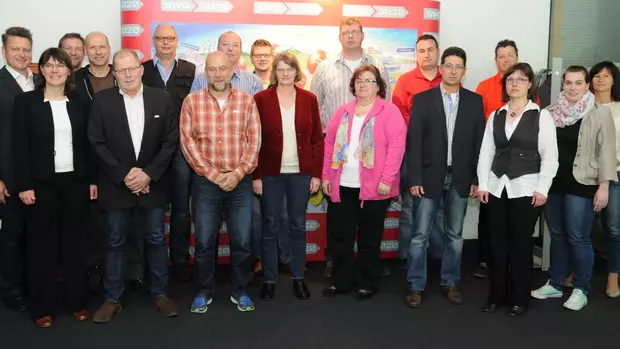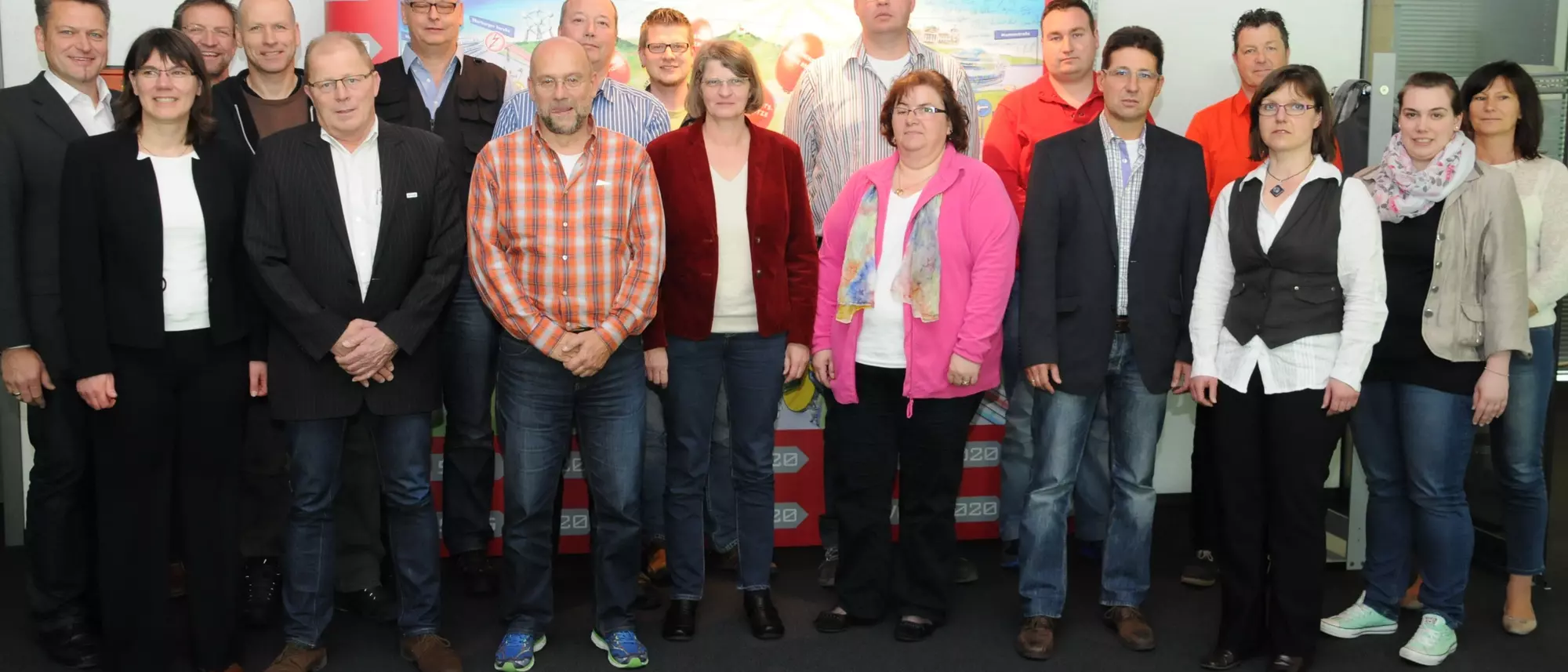
The new Energy Saving Ordinance, EnEV 2014 for short, came into force on 1 May 2014. Last Friday, Stadtwerke Gießen informed municipal environmental and energy consultants as well as employees from building departments about the energy requirements it places on new and existing buildings.
In October 2013, the German government amended the Energy Saving Ordinance (EnEV), thereby legally implementing the EU requirements for the energy efficiency of buildings in Germany. The amended ordinance has been in force since 1 May 2014 and, compared to the EnEV 2009, places some new requirements on builders and property owners - both in the private and public sectors.
"Builders and homeowners are now asking themselves to what extent they are affected and what they need to consider in future," says Michael Rösner, Head of Sales for Private and Commercial Customers at Stadtwerke Gießen (SWG). Municipalities in particular, which have to fulfil certain requirements earlier than private building owners, are unsettled. "As energy experts, we explain to those responsible in the municipalities how they can save electricity and heat with little investment and comply with legal requirements," explains Michael Rösner. Stadtwerke Gießen regularly invites municipal employees to the Municipal Environmental Meeting (KUT) in the SWG main building in Lahnstraße specifically for this purpose. On Friday 16 May, the participants learned about the tasks they face in connection with EnEV 2014.
Meeting high requirements with district heating
Gisela Renner, an independent energy consultant from Cologne, explained to the participants the new features of the amended Energy Saving Ordinance for new builds, among other things. From 1 January 2016, buildings must have a significantly lower primary energy requirement.
With a connection to the SWG district heating network, building owners and property owners already fulfil these requirements today. This is because the primary energy factor - i.e. the ratio of primary energy used to final energy supplied - for the Giessen district heating network is currently 0.41. By comparison, a conventional natural gas boiler is considerably higher at around 1.1. SWG is constantly working on further reducing the current excellent value and thus creating the basis for a climate-friendly energy supply of the future.
Tightening up energy certificates
According to EnEV 2014, the "nearly zero-energy building" is to become the standard in the private sector from 2021. For public properties, the legislator is already stipulating this from 2019. "The federal government is assigning local authorities a role model and pioneering role. They should set a good example," explains Michael Rösner.
The same applies to the obligation to display energy performance certificates. In contrast to EnEV 2009, it has applied to all public buildings with heavy public traffic and a usable area of 250 square metres or more since 1 May 2014. Corresponding private properties - such as cinemas or large catering establishments - only have to meet this requirement from a size of 500 square metres. In future, property owners will not have to display the energy performance certificate, but will have to provide a copy to potential buyers or tenants. The EnEV 2014 even goes one step further: specific information from the energy performance certificate must be included in the sales or letting advert.
Existing buildings largely spared
Apart from the changes regarding the obligation to provide an energy performance certificate, EnEV 2014 hardly provides for any tightening for existing buildings. In most cases, they only affect the calculation methods for energy requirements.
In her presentation, Gisela Renner cited the obligation to replace old oil and gas boilers as the biggest change. If they were installed before 1985, homeowners must replace them by 2015. However, the legislation excludes low-temperature and condensing boilers. The same applies to private homeowners who have occupied a flat in their property since at least 2002.
"From a legal perspective, there is no urgent need for action in existing buildings - neither in the private nor the public sector. However, local authorities can save a lot of energy,CO2 and money in the long term if they set high standards for upcoming refurbishments," notes Michael Rösner. Important: Investments should be planned well and individually so that, for example, a new heating system or façade insulation pays for itself as quickly as possible.
"As a partner, we support the municipalities in their projects. Together with them, we check which adjustments are worthwhile," explains Michael Rösner and mentions another advantage of the collaboration: "As Stadtwerke Gießen works closely with local tradespeople, the added value remains in the region."
Applying for and renewing energy certificates
At the KUT, Michael Rösner also pointed out that Stadtwerke Gießen supports local authorities and all private property owners when it comes to energy certificates. Anyone who needs help can contact the energy consultants directly at the SWG customer centre on the market square. The experts can be reached by telephone on 0800 23 02 100 - free of charge from the German landline network and the German mobile phone network. Information about the energy performance certificate is also available on the SWG website energiessen.de.

